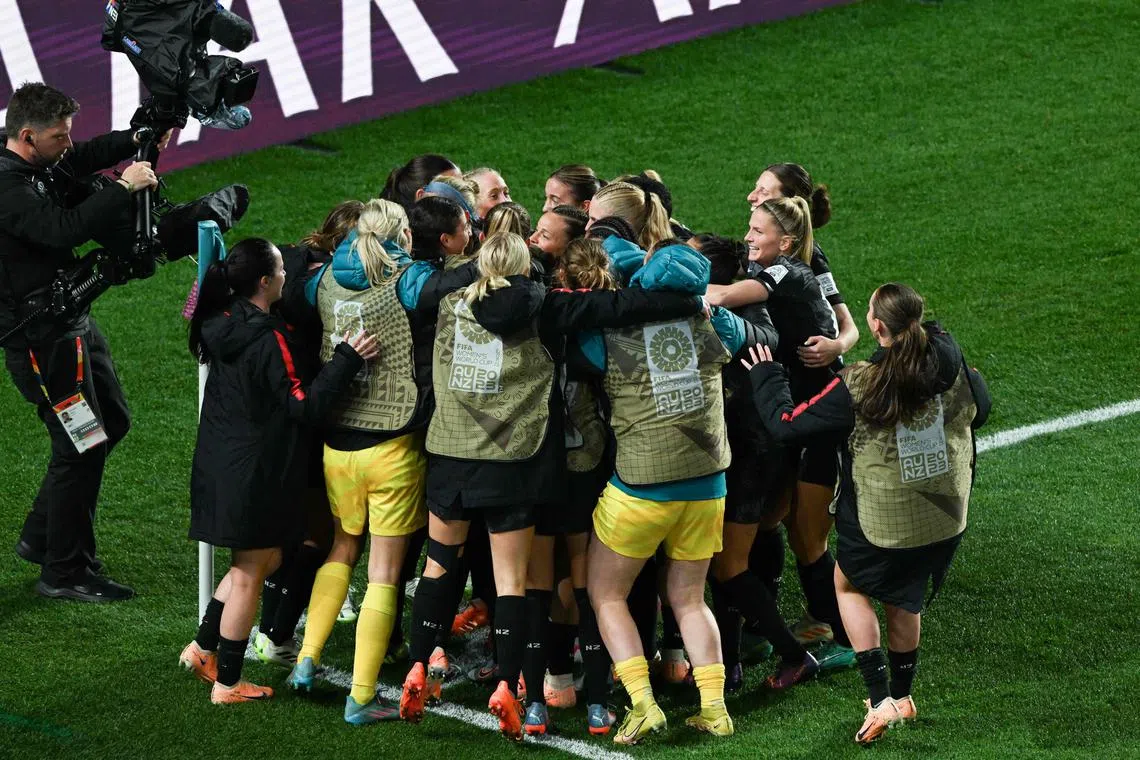Kiwi players hope World Cup will leave lasting legacy in rugby-mad homeland
Sign up now: Get ST's newsletters delivered to your inbox

New Zealand players celebrate after scoring in the 1-0 win over Norway in the Women's World Cup.
PHOTO: AFP
Follow topic:
ADELAIDE – The Women’s World Cup has drawn record crowds in co-host New Zealand, with early concerns about ticket sales in the island nation that predominantly supports rugby long forgotten.
But will the tournament leave a lasting legacy on the country after teams have packed up and camera lights been dimmed?
Ben Bate, head of women’s football at Auckland United, said that clubs must play an active role in getting more eyes on the sport, either in person or online.
“A lot of it is engagement from the clubs and the federation – I think that’s key,” he said.
“The more we can get on TV... Obviously, streaming is a great thing but having access to that and having the kids know where to find all those different leagues... Knowing which one to find is a struggle at times.”
New Zealand will have hosted 29 matches over the course of the tournament, including the Football Ferns’ thrilling 1-0 victory over Norway, which was also their first World Cup win in six appearances.
Spain’s 5-1 win over Switzerland
Half of the tournament’s 32 teams were based in New Zealand, often sharing training facilities with local clubs.
“I think (women’s football) has a really bright future,” said Caleb Ward, interim women’s coach at Western Springs Association Football Club, who hosted Norway.
“To see New Zealanders start to embrace it is really cool and, hopefully, we get the knock-on effect of more people participating.”
Charlie Dunn, a centre-back for Western Springs, said she has to actively promote football to her friends.
“Especially girls’ football, you have to promote that a lot over boys’ football, rugby or something,” the 16-year-old said.
“But I think most people are kind of getting more into the football because the World Cup’s been here. So, it’s developing more.”
New Zealand has only one professional team, the Wellington Phoenix Football Club, who play in the Australian A-League.
New Zealand’s top women play in Europe, the National Women’s Soccer League (NWSL) in the United States and on Australian pro teams.
Jess Philpot, a 24-year-old defender for Auckland United Football Club, sees money as the key to development.
“I think just continuing to invest in women’s football is going to do wonders,” she said.
REUTERS

